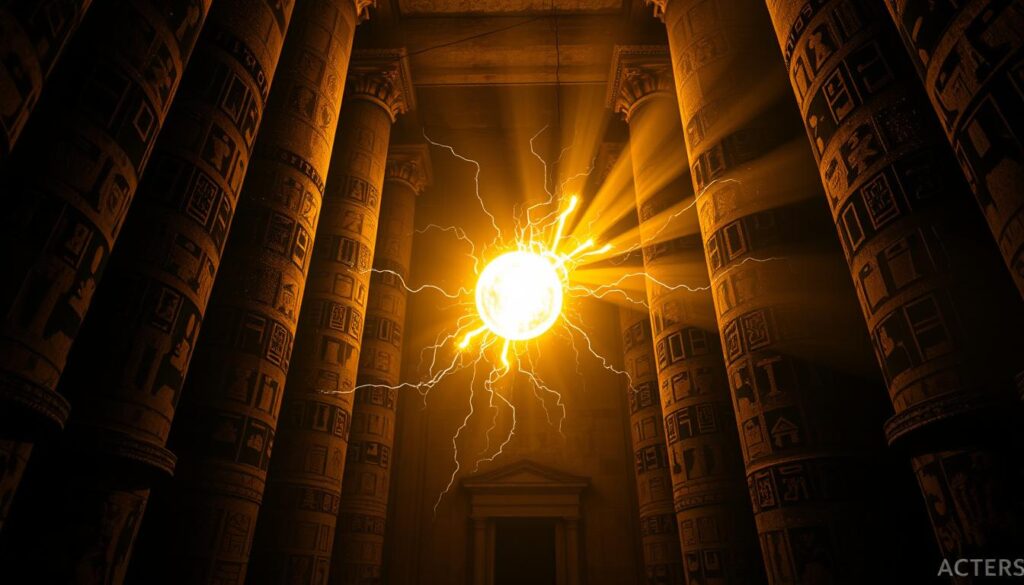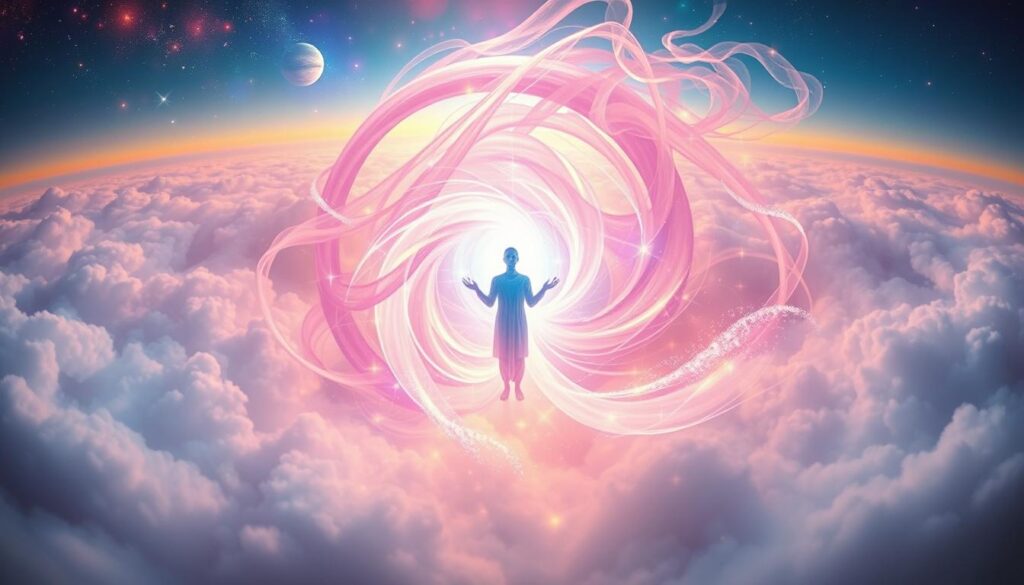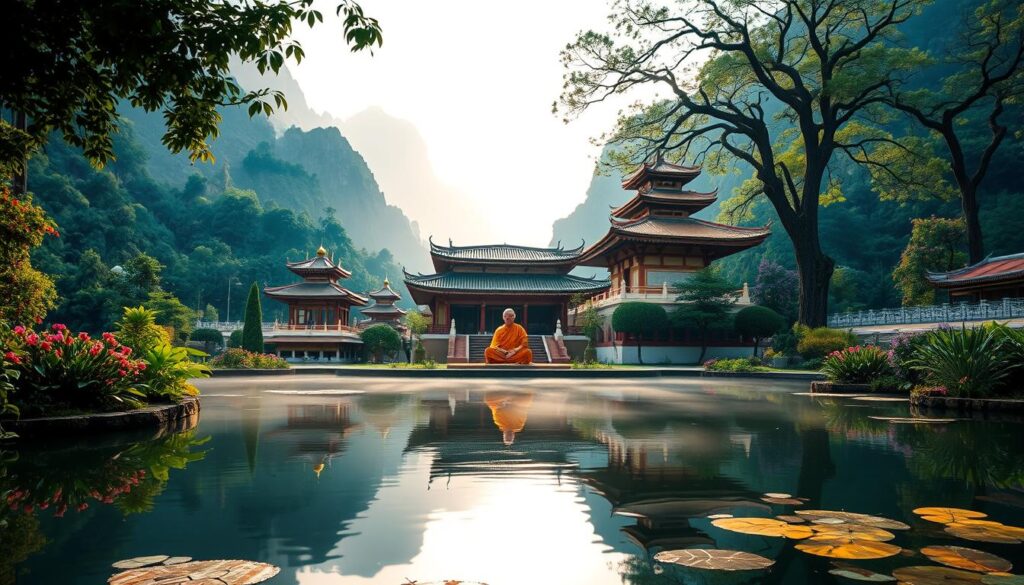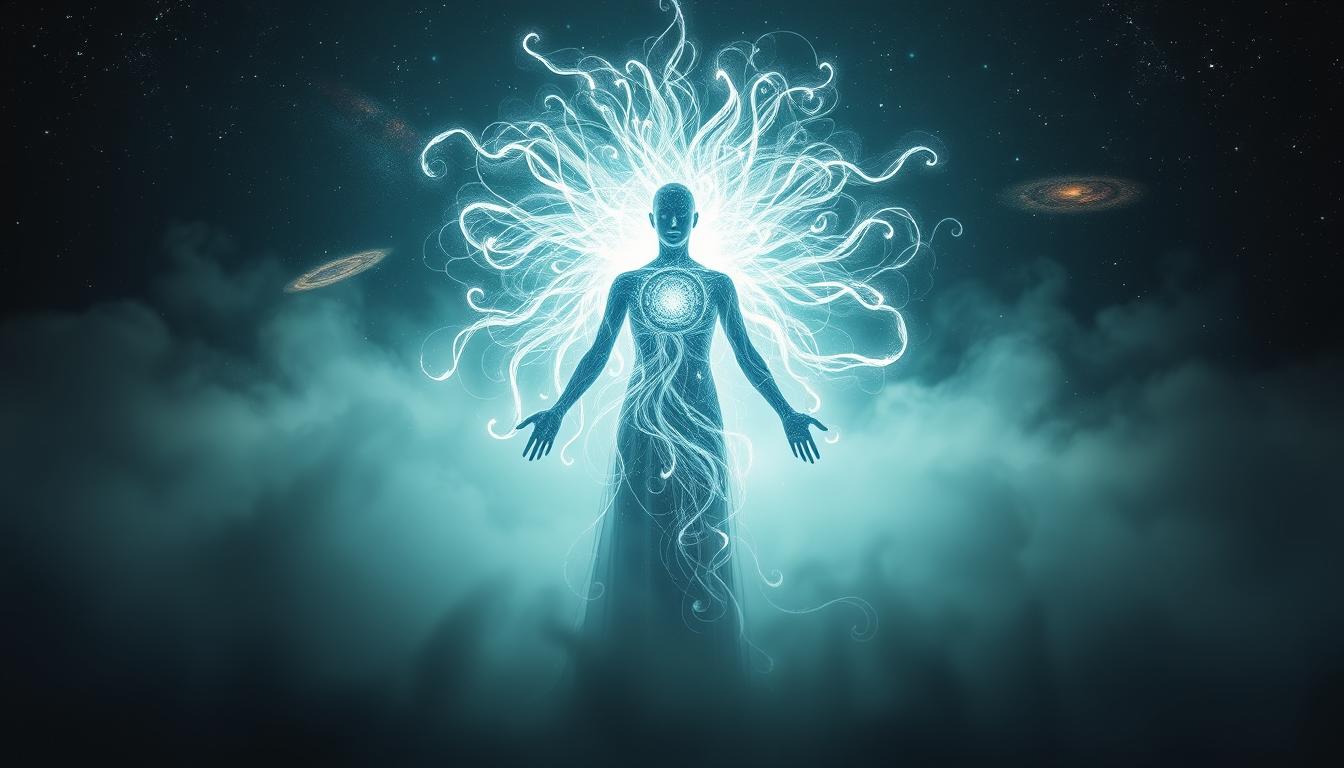Have you ever felt a deep connection to the world around you? Many believe that every person has the potential to tap into a hidden source of energy and power. This idea isn’t new—mystics and visionaries like Anna Cassel have long explored the interplay between the mind, body, and spirit.
Historically, some thought only a select few could access this ability. Today, we know it’s not about being “special” but about embracing your unique path. By balancing belief with real experience, anyone can begin to unlock their potential.
Meditation and self-reflection play a key role in this journey. They help you connect with your inner strength and open doors to a brighter future. Whether you’re just starting or have been on this path for some time, the journey is deeply personal and rewarding.
Key Takeaways
- Everyone has the potential to unlock hidden abilities.
- Belief and practice are essential for growth.
- Meditation helps connect mind, body, and spirit.
- Historical perspectives inspire modern practices.
- Balancing belief with experience leads to success.
Discovering Spiritual Power and Its Importance
Have you ever wondered how the unseen forces around us shape our daily lives? Spiritual power is more than just a concept—it’s a way to connect with the deeper aspects of your existence. This connection can bring healing, growth, and a sense of purpose to your journey.

Understanding this power isn’t about following strict rules. It’s about finding a balance between your heart and mind. When you embrace this balance, you open doors to a brighter future filled with compassion and understanding.
The Intersection of Spirit, Energy, and Life
Spirit, energy, and life are deeply intertwined. Traditional beliefs often describe this connection as a flow of energy that sustains all living things. Modern practices, like mindfulness, build on this idea by helping you tune into your inner self.
For example, Psalm 84 highlights the transformative power of faith and pilgrimage. These ancient teachings remind us that spiritual energy isn’t just about belief—it’s about action. By aligning your spirit with your daily life, you can create a harmonious balance.
How Meditation Opens the Inner Path
Meditation is one of the most effective ways to explore your inner world. It allows you to quiet your mind and connect with your spirit. Studies show that 60% of people who practice meditation feel more connected to their spiritual selves.
Through meditation, you can access deeper levels of energy and compassion. This practice helps you understand your own vulnerabilities while building inner strength. As you grow, you’ll find that this journey impacts not just you, but your family and community as well.
| Aspect | Traditional View | Modern View |
|---|---|---|
| Spirit | Seen as a divine force guiding life | Viewed as inner energy that can be harnessed |
| Energy | Believed to flow through all living things | Understood as a focus of mindfulness practices |
| Life | Connected to spiritual rituals and faith | Integrated with daily habits and self-care |
“The journey of a thousand miles begins with a single step.”
Embracing spiritual power is a personal journey. Whether through meditation, faith, or self-reflection, the path you choose can lead to profound transformation. Start today, and discover the unseen forces that shape your world.
Exploring Types of Spiritual Power
What if your mind could connect with energies beyond the physical world? Many believe that certain abilities, like telepathy and clairvoyance, allow us to tap into a deeper understanding of life. These extraordinary skills often seem mysterious, but they are rooted in the balance of mind and body.

From Telepathy to Clairvoyance: An Overview
Telepathy, the ability to communicate without words, has fascinated people for centuries. Clairvoyance, or “clear seeing,” allows individuals to perceive events or objects beyond normal senses. These abilities are not just myths—they are part of a broader spectrum of psychic phenomena.
Historical traditions often describe these skills as gifts from the divine. Modern science, however, views them as extensions of the mind’s potential. Both perspectives agree that these abilities require focus and inner harmony.
Understanding Psychic Abilities in Daily Life
Psychic abilities can enhance your daily life in surprising ways. For example, intuition can guide decisions, while heightened awareness can improve relationships. These skills are not limited to a select few—anyone can develop them with practice.
Balancing the mind and body is key. Practices like meditation help calm the mind, making it more receptive to subtle energies. When at rest, the mind can access deeper insights and clarity.
| Ability | Description | Practical Use |
|---|---|---|
| Telepathy | Mind-to-mind communication | Enhances empathy and understanding |
| Clairvoyance | Perceiving distant events or objects | Provides foresight and guidance |
| Intuition | Inner knowing without logical reasoning | Helps in decision-making |
“The mind is everything. What you think, you become.”
Exploring these abilities can lead to profound personal growth. By understanding the “other” possibilities, you open doors to a brighter future. Start your journey today and discover the hidden potential within you.
Historical Perspectives and Cultural Contexts of Spiritual Energy
Throughout history, humanity has sought to understand the unseen forces that shape our existence. From ancient rituals to modern practices, the quest for spiritual energy has been a cornerstone of human experience. This journey has shaped cultures, beliefs, and the way we view the world.

Ancient Beliefs Versus Modern Secular Views
In ancient times, spiritual energy was often linked to sacred sites and chosen individuals. Many cultures believed that certain people had the ability to connect with the divine. For example, the Gnostic gospels describe Jesus as a teacher who emphasized personal access to spiritual power.
Today, secular views often separate spiritual energy from organized religion. Father Richard Rohr highlights this shift, noting that modern interpretations focus on inner growth rather than external rituals. This contrast shows how our understanding of the spirit has evolved over time.
The Impact of Organized Religion and the Role of the Divine
Organized religion has played a significant role in shaping how people access spiritual energy. While it has provided structure and community, it has also sometimes diluted personal connection. For instance, traditional rituals often required intermediaries, limiting direct access to the divine.
Despite this, many still find deep meaning in religious practices. The teachings of Jesus, for example, continue to inspire millions to seek a closer relationship with the spirit. This ongoing tension between inherited beliefs and personal experience highlights the complexity of spiritual energy.
| Aspect | Ancient View | Modern View |
|---|---|---|
| Spiritual Energy | Linked to sacred sites and chosen individuals | Focused on inner growth and personal connection |
| Role of Religion | Provided structure and community | Often seen as separate from personal spirituality |
| Access to the Divine | Required intermediaries | Emphasizes direct, personal connection |
“The divine is not something outside of us; it is within us, waiting to be discovered.”
Understanding the historical and cultural contexts of spiritual energy can enrich your journey. Whether through ancient rituals or modern practices, the path to connecting with your spirit is deeply personal. Explore more insights on this topic at Hannah Brites.
Real-Life Insights and Transformative Experiences
Have you ever faced a challenge that changed your life forever? Many people discover their greatest strength during the hardest times. Trials often serve as a gateway to deeper understanding and growth.

Learning from Mystics and Spiritual Teachers
Mystics and spiritual teachers have long embraced hardship as a source of power. Sufi teachers, for example, view suffering as a way to connect with the divine. Carissa Schumacher, a modern spiritual guide, often shares how her own struggles led to profound awakening.
These teachings remind us that pain is not the end but a beginning. By shifting our perspective, we can transform suffering into a path of growth. As one Sufi teacher said, “The wound is where the light enters you.”
Embracing Trials as a Source of Inner Strength
Life’s challenges can build a reservoir of energy for the future. Meditation plays a key role in this process. It helps calm the mind and allows us to reflect on our experiences.
Consider the story of a woman who lost her job but found her calling in helping others. Her journey shows how adversity can lead to unexpected opportunities. Such stories inspire us to see trials as stepping stones rather than obstacles.
| Teacher | Teaching | Impact |
|---|---|---|
| Sufi Mystics | Embrace suffering to connect with the divine | Inspires resilience and faith |
| Carissa Schumacher | Turn personal struggles into spiritual growth | Encourages self-discovery |
| Modern Meditators | Use meditation to process pain | Promotes inner peace and clarity |
“The only way out is through.”
Personal transformation often impacts not just the individual but their family and culture. By embracing our unique journey, we can inspire others to do the same. The path to understanding is paved with both pain and joy.
Buddhist Wisdom and Eastern Approaches to Spiritual Power
How can ancient wisdom guide us in today’s fast-paced world? Buddhist teachings offer timeless insights into cultivating inner strength and harmony. By focusing on mindfulness and compassion, these practices provide a path to personal and collective transformation.

Thich Nhat Hanh’s Teachings on Cutting Through Afflictions
Thich Nhat Hanh, a renowned Buddhist teacher, emphasizes the importance of cutting through afflictions to gain deeper insight. He teaches that suffering often stems from our inability to let go of negative emotions. By practicing mindfulness, we can address these afflictions and find peace.
One of his key teachings is the power of being present. When we focus on the present moment, we can break free from the cycle of worry and regret. This practice not only calms the mind but also opens the door to greater clarity and understanding.
Integrating Insight, Forgiveness, and Love into Practice
Buddhist wisdom encourages us to integrate insight, forgiveness, and love into our daily lives. These qualities are essential for cultivating inner strength and compassion. For example, forgiveness allows us to release resentment, while love helps us connect with others on a deeper level.
Meditation is a powerful tool for developing these qualities. Through regular practice, we can train our minds to focus on positive emotions and let go of negativity. This process not only benefits us but also creates a ripple effect, improving our relationships and communities.
| Aspect | Eastern Approach | Western Approach |
|---|---|---|
| Power | Inner peace and mindfulness | External influence and control |
| Life | Focus on present moment | Emphasis on future goals |
| Energy | Harnessed through meditation | Driven by ambition and action |
“The present moment is the only moment available to us, and it is the door to all moments.”
By embracing Buddhist wisdom, we can find balance in our lives and contribute to a brighter future. Whether through meditation, forgiveness, or compassion, these practices offer a way to unlock our true potential. Start your journey today and discover the transformative power of mindfulness. For more insights, visit Hannah Brites.
Conclusion
What does it mean to truly connect with your inner self? This journey is about more than just belief—it’s about understanding and action. From ancient teachings to modern practices, the pursuit of inner strength has shaped life across cultures and generations.
Meditation and mindfulness remain powerful tools for unlocking your potential. They help calm the mind and open the heart, creating a path to a brighter future. Whether through personal trials or cultural narratives, these practices offer a way to grow and transform.
Your journey is unique. By embracing compassion and self-reflection, you can empower not just yourself but your family and community. Start today, and discover the power within you to create meaningful change.

